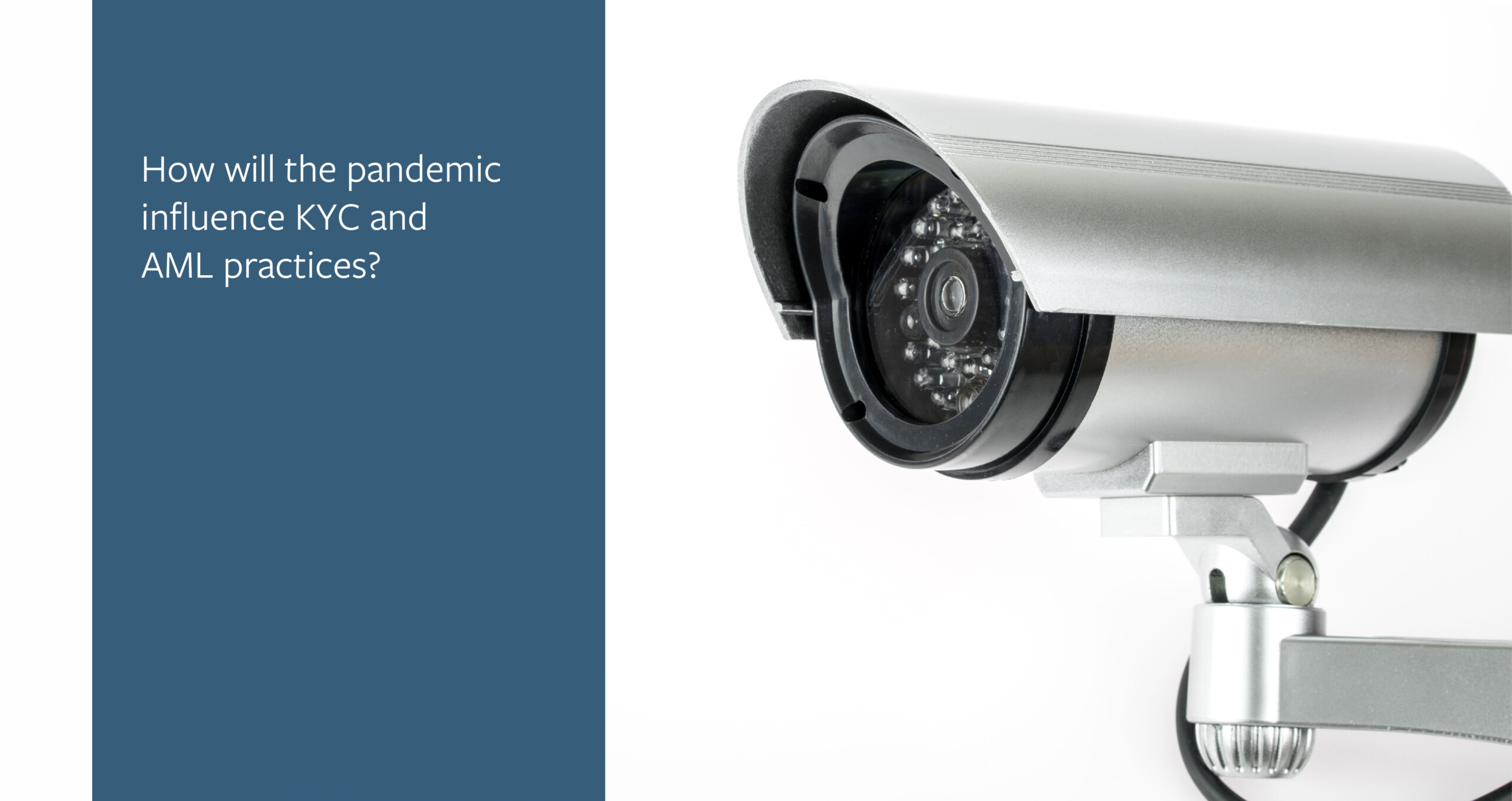Compliance and COVID: How the pandemic influences KYC/AML practices
Compliance teams, the watchdogs of any institution ensuring regulation is adhered to and abided by, will now need to keep a more watchful eye on the effects of COVID-19 on their institution. You may question why a pandemic will cause organisations to acquire additional compliance support, but during a time of swift change, new risks can arise and more caution needs to be taken.
The FCA has been vocal about businesses developing contingency plans around managing the risk associated with COVID-19 and it is no surprise that financial criminals have used the pandemic as the perfect opportunity of exploitation. Adapting to new environments is a key skill for financial criminals and a post-COVID-19 world looks like banks more than ever will have to increase their AML and KYC platforms, as fraud and cyber-attacks have risen and will continue to do so. Post pandemic both private and public sectors will need to adopt stronger AML and KYC practices. So how will this impact your compliance teams and what should they be focussing on in order to build more resilient compliance strategies?
1. Analyse emerging risks: Understanding the new emerging risks COVID-19 brings will be key for any compliance team to analyse and action. Organisations are more vulnerable to risk during economically volatile times like these, and building a resilient risk assessment framework should be a top priority for all compliance teams.
2. Implement stronger risk assessments: Ensure that your AML/KYC risk assessment is strong enough to expose any weakness that potential coronavirus criminals could use make sure the risk assessments are looking at key risks that could be linked with new coronavirus crime. The changes in the environment need to be understood and how it could impact new potential risks.
3. Be prepared to cope with additional pressures: An Influx of pressures will be placed on financial institutions as they will see high volumes of contract remediation, loan applications, and customer inquiries. KYC practices will have to be at their strongest now to ensure that EDD takes place especially when it comes to customer verification and other KYC practices. Financial institutions will look to acquire external teams to help with the additional pressures.
4. Ensure compliance is followed with customer verification: KYC efforts will have to be increased to ensure that those eligible for funds will be able to access it effectively and efficiently. Another key issue is the nature of the remote vetting and CDD. Limited face to face interactions could affect information gathered and so more caution needs to be implemented when conducting CDD remotely. This will be paramount when conducting verification of key documents and information to identify forgery of any kind.
5. Need for underwriters: Compliance will be key in ensuring that laws and regulations are adhered to, which is a necessary function during a time where increased risk and exposure is rife. The need for additional compliant underwriters would improve the ability to handle influxes of applications that will require processing. Additional auditors are also necessary for various spot checks that will need to be conducted in KYC reviews.
6. Achieving resilient compliance through resourcing: The demand for contingent workforces is a key trend that we are witnessing, this trend is one that is expected to grow post-COVID -19 as organisations will be outsourcing contingent workers on a project basis to keep running costs low. Now more than ever, those in compliance will be inundated with remuneration claims, mortgage holiday requests, loan approvals, and a plethora of other government-related claims and policies, that they will need to vet, process and distribute. The additional demand will require contingent workforces to step in and upscale productivity capacity to ensure that all the additional work is done.
The post-COVID-19 world will present enormous amounts of opportunities for those who are prepared, and many are starting their preparations to transition into new market norms by equipping themselves with contingent workforces. The time is now, and many have started their endeavors of recruiting these contingent remote workforces, to ensure they will be ready for when the new wave of new work comes in.
If you require help with contingent resourcing, get hold of us today.

